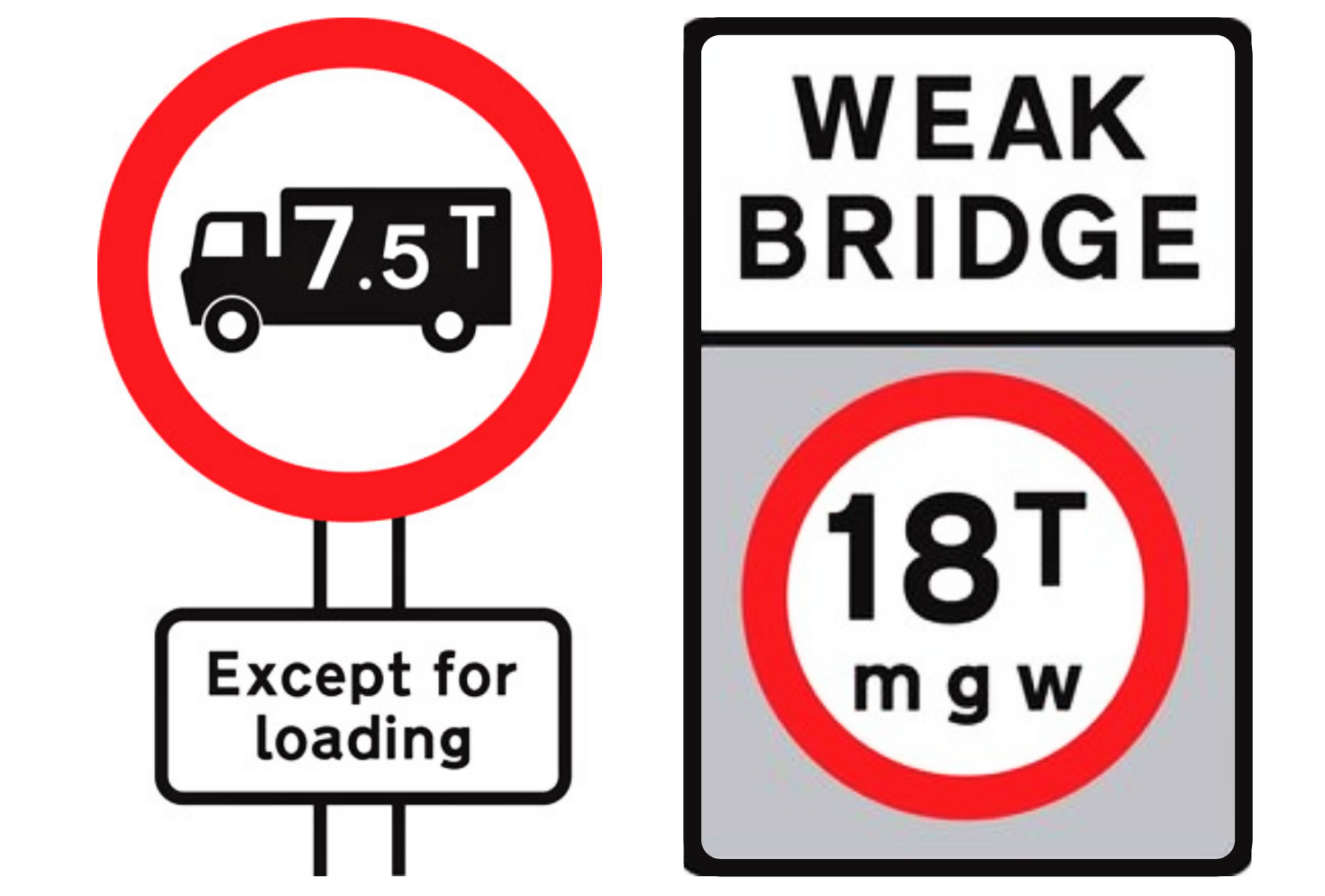Use this page to find out how and why we restrict the weight of vehicles allowed on some roads, and how to report a vehicle breaking a weight restriction order.
Select a topic below to read more.
A weight restriction order makes it illegal to drive vehicles over a certain weight through the area where the order applies.
Roads where the weight restriction applies will have clear signage to show the maximum allowed weight, and any exceptions (such as stopping to load goods). Typical examples and their meanings are below.

Left: Vehicles weighing 7.5 tonnes or more can only enter or stop to load goods
Right: Vehicles with a laden weight, or maximum gross weight (mgw), of 18 tonnes or more cannot use this route for any reason
We only take out a weight restriction order where it is necessary to protect roads, structures and areas from the effects of large and heavy vehicles. The following are typical examples where we might use one:
- Roads and structures which were designed and built for much lighter vehicles, and may have heritage value that could be damaged by heavy traffic
- Roads and structures which are particularly weak or in need of repair
- Places where the road is too narrow or small for particularly large and heavy vehicles
- Areas where larger vehicles may endanger other road users, such as around the entrances to schools
You are responsible for knowing the weight of your vehicle, and checking if your planned route includes any roads where weight restrictions will affect you. You are legally liable if you breach a weight restriction order. It is a criminal offence and we may take you to court.
If you are driving your vehicle for an employer, they may also be held legally responsible. The penalty for breaking a weight restriction is a fine up to £1000, and we may seek to recover costs.
Actions we will take
We will work with other stakeholders and agencies to make sure any highway weight restrictions are clearly signed and enforceable.
We will follow the B&NES enforcement policy when working on the enforcement of weight restrictions. This means we have various enforcement options, from sending warning letters through to prosecution, depending on the circumstances of the offence. Typically, we will issue a warning for a first offence, escalating to formal enforcement measures, such as prosecution and fines, for repeated offences.
Where appropriate, we may notify the traffic commissioner (who is responsible for the licensing and regulation of commercial vehicles) of persistent offenders and of any enforcement action we take.
Limits to what we can do
It's important to note that environmental weight restrictions are particularly difficult to enforce as, in most cases, there are exemptions for vehicles requiring legitimate access for loading.
Trading Standards officers do not have powers to stop vehicles.
Report a breach
You will need to provide the following, for us to investigate your report:
- The vehicle registration number
- Photographic evidence of the breach if you have any
- A record of the time and place of the breach
- A witness statement from you
This guide from Oxfordshire County Council may help you to identify the type and weight of vehicle
